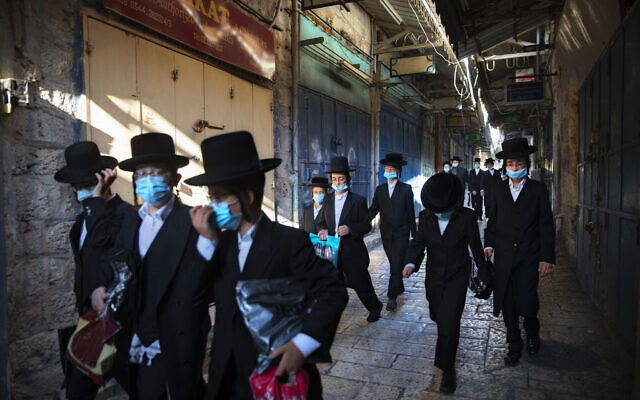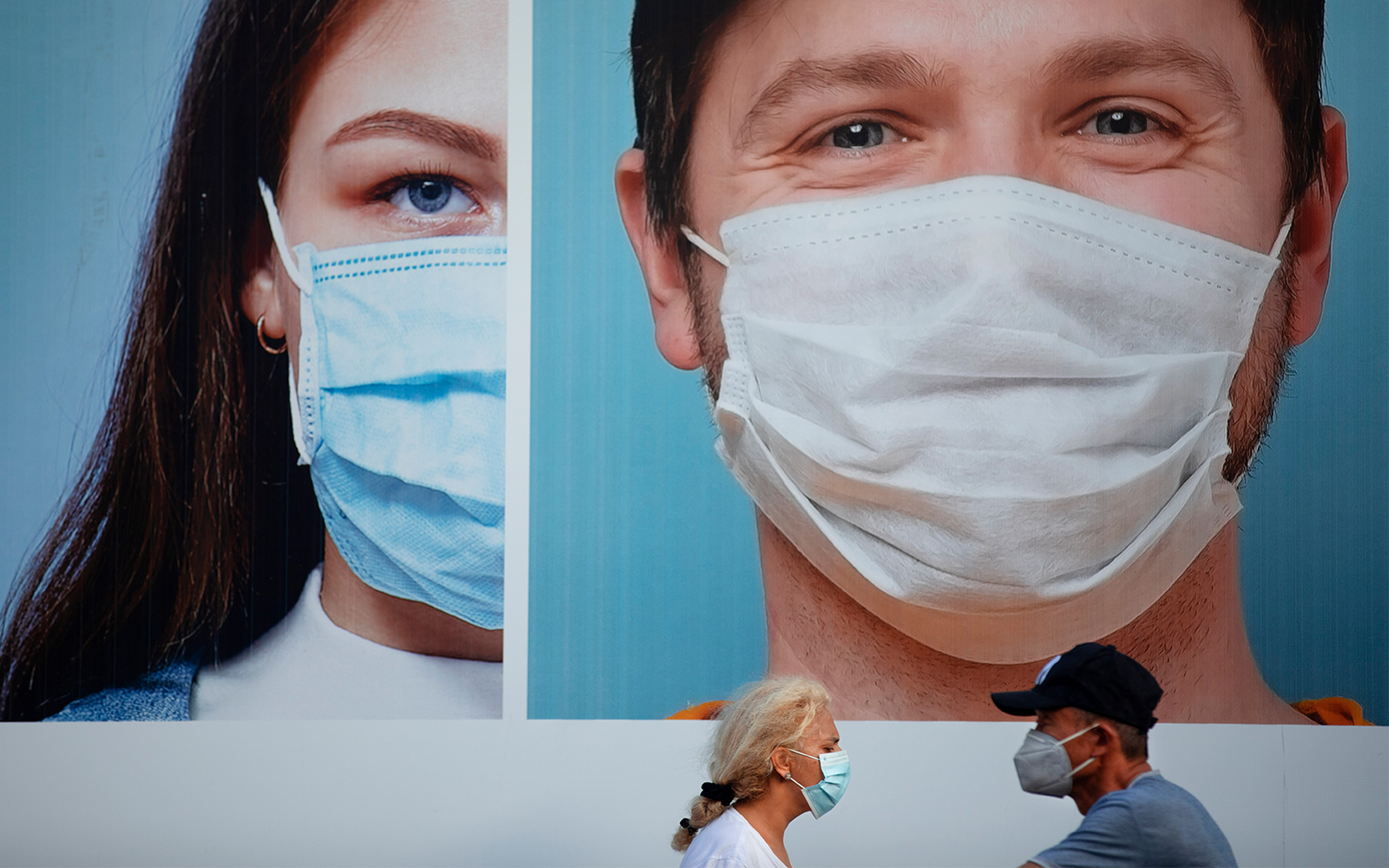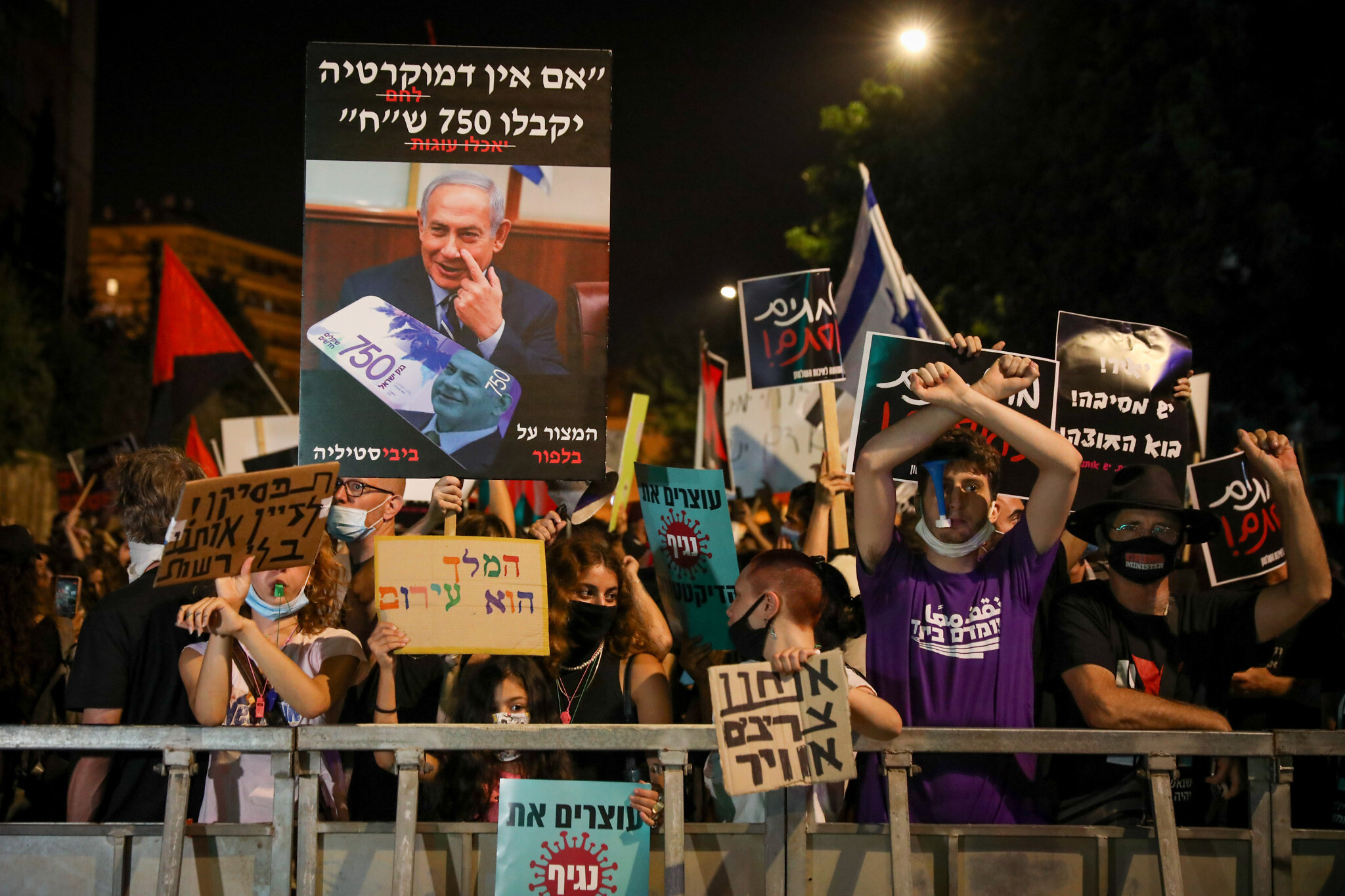Cabinet announces restrictions starting 5 p.m.; non-essential stores to close on weekends; Netanyahu and Gantz to decide fate of schools

Cabinet ministers decided in the early hours of Friday morning to impose new lockdown measures as virus cases in Israel surged to record highs.
Restaurants and gyms will close at 5 p.m. on Friday, but beaches will remain open and there will be no restrictions on movement. Restaurants will be available for takeout and delivery, and gyms used by professional athletes will be allowed to operate.
Gatherings of over 10 people indoors, and 20 outdoors, will also be forbidden, but work groups and nuclear families will be exempt.
Stores will close on weekends, but stores offering essential services, such as pharmacies and supermarkets, will be allowed to remain open. Starting next Friday, July 24, beaches will be closed on weekends.
Malls, markets, barbers, beauty parlors, libraries, zoos, museums, exhibition spaces, pools and tourist sites will also be closed on weekends.
Restaurants in hotels will be limited to 35 percent capacity and hotel pools will remain open.
Government offices will be limited to 50% capacity and will be closed to the public, except for online services.
It wasn’t immediately clear what limits, if any, will be imposed on religious gatherings.
Prime Minister Benjamin Netanyahu and Defense Minister Benny Gantz will decide over the weekend whether to close educational institutions. Shutting down the education system would close kindergartens, summer camps and summer schools.
The restrictions were reportedly made with the support of National Security Adviser Meir Ben-Shabbat, whose agency has led the effort to combat the virus. The announcement came after over around six hours of talks.
“Within three weeks we’ll be at 1,600 in serious condition if we continue down this path without new restrictions,” Netanyahu warned at the start of the cabinet meeting. “If we don’t flatten the curve, we’re putting many Israelis in danger.”
“The alternative to the steps we [want to] take today is much more difficult steps tomorrow, which we are trying to avoid,” Netanyahu said. He added that the proposals brought before ministers “are mainly aimed at stopping gatherings.”
Netanyahu on Thursday asked Knesset Law Committee Chairman MK Ya’akov Asher to prepare legislation to be voted on next week that would grant the government the authority to declare full lockdowns on weekends.
Under current rules, the cabinet has the power to immediately impose new restrictions, after which the Knesset has a week to decide whether to approve or rescind them.

One of the main points of contention at Thursday’s meeting was the fate of the education system. Education Minister Yoav Gallant opposed closing schools, arguing that the data on the virus spread did not back up the decision.
Likud’s Ofir Akunis, Gila Gamliel and Ze’ev Elkin also opposed shuttering schools, Ynet reported.
According to Channel 12 news, Health Ministry officials told cabinet ministers that Israel could see 20 coronavirus deaths a day next month if the rate of new infections isn’t curbed.
Meanwhile, Gantz has proposed that lockdowns be imposed on weeknights as a means to improve social distancing while minimally impacting the economy, Channel 12 said. It was not clear whether he was proposing the measure instead of weekend lockdowns or in addition.
Justice Minister Avi Nissenkorn insisted on Thursday he would ensure that any restrictions don’t limit political protests, amid recent demonstrations against the government’s coronavirus policies as well as rallies against Netanyahu’s continued rule.

Israel confirmed a record 1,939 new cases in 24 hours on Thursday evening.
As of Thursday night, there were 25,305 active cases in Israel. Among those currently sick, 202 were in serious condition, including 58 on ventilators. Another 110 people were in moderate condition and the rest had mild symptoms or were asymptomatic.
Five people died of COVID-19 on Thursday, bringing the death toll to 384.
Of the 46,059 people to test positive for the coronavirus in Israel since the start of the pandemic, 20,370 have recovered. The ministry also said 30,509 tests were performed on Wednesday.
A leading Israeli doctor told The Times of Israel on Thursday that weekend lockdowns could do more harm than good by forcing people indoors, where the virus spreads more easily.
Israel was initially seen as a success story after clamping down on the virus by imposing a strict lockdown in March and April, but saw the pandemic surge to unprecedented levels after reopening schools and rescinding almost all restrictions.
Experts have blamed a too-speedy reopening and the lack of an effective contact tracing program as main factors in the virus running riot.
As reported by The Times of Israel
